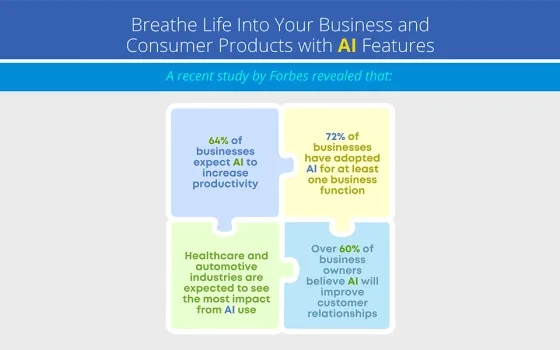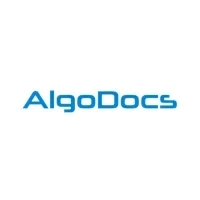The transformative potential of Generative AI has captured attention across industries, and the HR Tech space is no exception. By breaking long-standing barriers, Generative AI is reshaping how organizations attract, engage, and retain top talent while optimizing HR operations.
This blog explores the challenges, opportunities, and strategic benefits of implementing Generative AI in HR Tech, showcasing its role in driving efficiency, innovation, and employee satisfaction.
The Need for Innovation in HR Tech
Traditional HR practices often grapple with inefficiencies like:
- Manual processes that consume time and resources.
- Limited personalization in employee interactions.
- Challenges in extracting actionable insights from vast data sets.
As organizations shift to employee-centric models and embrace hybrid work environments, the need for smarter, data-driven solutions has become paramount. Generative AI stands at the forefront of this evolution, offering dynamic tools that revolutionize HR processes.
How Generative AI is Transforming HR Tech
Generative AI introduces groundbreaking advancements across various HR functions:
1. Automating Recruitment and Talent Acquisition
Generative AI-powered tools simplify recruitment by:
- Creating personalized job descriptions tailored to specific roles.
- Analyzing resumes and matching candidates to roles with unprecedented precision.
- Generating AI-driven interview questions based on a candidate’s profile and job requirements.
This enhances the speed and accuracy of hiring, reducing time-to-hire while improving candidate experience.
2. Personalized Learning and Development (L&D)
With Generative AI, HR teams can:
- Develop personalized training modules tailored to individual employee needs.
- Generate real-time learning recommendations based on employee performance and career aspirations.
- Create interactive simulations or scenarios for skill-building.
This not only boosts employee engagement but also aligns workforce skills with organizational goals.
3. Employee Engagement and Retention
Generative AI elevates employee engagement through:
- AI-powered chatbots that provide instant, personalized responses to employee queries.
- Analyzing sentiment data to identify areas of concern within the workforce.
- Automating recognition and feedback mechanisms to foster a culture of appreciation.
By creating a seamless and supportive experience, HR teams can significantly enhance retention rates.
Breaking Barriers: Challenges in Implementation
Despite its benefits, implementing Generative AI in HR Tech comes with its own set of challenges:
1. Data Privacy and Security
HR systems handle sensitive employee data such as personal information, compensation details, and performance records. The use of Generative AI introduces risks such as:
- Data breaches: AI systems require large datasets, making them vulnerable to security threats.
- Compliance issues: Adhering to regulations like GDPR, CCPA, or local data privacy laws can be complex.
- Consent management: Ensuring employees consent to how their data is used by AI models.
2. Algorithmic Bias
Generative AI models are only as unbiased as the data they are trained on. Challenges include:
- Bias in training data: Historical data may reflect biases, such as gender or racial disparities, which AI could inadvertently perpetuate.
- Unfair hiring decisions: Bias in AI-generated outcomes could lead to discrimination in recruitment or promotions.
- Lack of transparency: Explaining AI-driven decisions to employees and stakeholders can be difficult.
3. Integration with Legacy Systems
Most organizations rely on existing HR platforms or enterprise resource planning (ERP) systems, creating challenges like:
- Compatibility issues: Integrating Generative AI with older systems may require significant customization.
- Scalability concerns: AI solutions need to handle growing data volumes without overburdening IT infrastructure.
- Data silos: Consolidating data from disparate HR systems to train AI models can be a hurdle.
4. Cost and Resource Requirements
Implementing Generative AI involves substantial costs, including:
- High initial investments: Developing or purchasing AI-powered tools and infrastructure is expensive.
- Skill gaps: Recruiting or training employees with AI expertise, such as data scientists and AI specialists.
- Maintenance and updates: Continuously refining AI models and systems to ensure optimal performance.
5. Ethical Considerations
Using AI in HR involves ethical concerns that must be addressed, such as:
- Employee trust: Employees may fear their data is being used unfairly or without transparency.
- Decision accountability: Determining who is accountable when AI systems make flawed or biased decisions.
- AI replacing human roles: Concerns over automation replacing HR professionals rather than augmenting their capabilities.
6. Accuracy and Reliability
AI models rely on quality data to generate reliable results. Challenges include:
- Incomplete or inaccurate data: Poor-quality data can lead to unreliable AI-generated outputs.
- Overfitting: AI models may not generalize well to new scenarios, leading to inconsistent results.
- Dependency on AI: Over-reliance on AI systems may reduce human oversight and critical thinking.
7. Change Management and Adoption
The adoption of Generative AI requires a cultural shift within HR departments:
- Resistance to change: HR teams may be hesitant to adopt AI tools, fearing job displacement or loss of control.
- Training employees: Ensuring HR professionals understand and effectively use AI tools.
- Stakeholder buy-in: Convincing senior leadership of the long-term value of Generative AI investments.
8. Legal and Compliance Risks
AI implementations must comply with evolving employment laws and regulations:
- Discrimination lawsuits: Unintended biases in AI could lead to legal challenges.
- Labor laws: Adhering to regional labor laws when using AI for tasks like scheduling or performance reviews.
- Audits: Ensuring AI models are auditable to demonstrate fairness and compliance.
How to Break Barriers in Generative AI Implementation
To address these challenges and ensure successful implementation, HR leaders can adopt the following strategies:
1. Strengthen Data Security Protocols
- Encrypt sensitive employee data to protect against breaches.
- Implement robust access controls and monitor AI systems for unusual activity.
- Regularly audit AI systems to ensure compliance with privacy regulations.
2. Address Algorithmic Bias
- Use diverse datasets to train AI models and reduce biases.
- Conduct regular audits of AI outputs to identify and mitigate bias.
- Implement explainable AI (XAI) to ensure transparency in decision-making processes.
3. Focus on Seamless Integration
- Partner with technology vendors experienced in integrating AI with legacy systems.
- Invest in scalable cloud-based infrastructure to handle growing data needs.
- Consolidate HR data into unified platforms to break down silos.
4. Optimize Costs and Resources
- Start with small-scale pilot projects to test AI applications before scaling.
- Upskill existing HR teams in AI and data analytics to bridge skill gaps.
- Leverage AI-as-a-Service (AIaaS) solutions to minimize infrastructure costs.
5. Foster Employee Trust
- Communicate openly with employees about how AI is being used and its benefits.
- Involve employees in the development and rollout of AI systems to ensure acceptance.
- Maintain human oversight to complement AI-driven processes.
6. Ensure Accuracy and Reliability
- Use high-quality, up-to-date data for training AI models.
- Regularly retrain AI systems to adapt to evolving business needs.
- Monitor AI performance to ensure consistent and reliable outputs.
7. Drive Change Management
- Conduct training sessions to familiarize HR teams with AI tools and their capabilities.
- Create a cross-functional task force to oversee AI implementation and address resistance.
- Highlight success stories to build momentum and gain organizational buy-in.
8. Navigate Legal and Compliance Challenges
- Work with legal experts to ensure AI systems comply with employment laws.
- Establish clear accountability for AI-driven decisions.
- Create auditable logs for all AI processes to demonstrate fairness and transparency.
The Future of HR Tech with Generative AI
Generative AI is not just a trend—it’s a paradigm shift in HR Tech. By enabling organizations to:
- Make faster, data-driven decisions.
- Deliver hyper-personalized experiences for employees.
- Optimize costs while boosting efficiency.
It empowers HR teams to become strategic enablers of business success.
Conclusion
The implementation of Gen AI in HR Tech marks a new era of innovation. By breaking traditional barriers, it creates opportunities for organizations to build smarter, more agile HR processes that enhance employee experiences and align with business objectives.
As the adoption of Generative AI accelerates, organizations must navigate the challenges thoughtfully and leverage this transformative technology to unlock the full potential of their workforce.




















